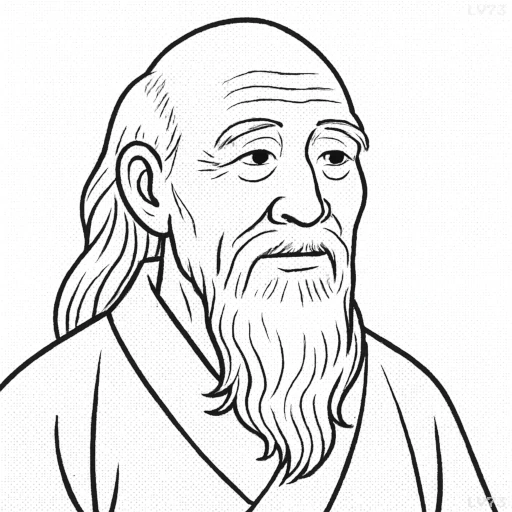“The Tao that can be told is not the eternal Tao; the name that can be named is not the eternal name. The Nameless is the origin of Heaven and Earth; the Named is the mother of all things.”

- 571 BC? – 470 BC?
- Born in China
- Philosopher
table of contents
Quote
“The Tao that can be told is not the eternal Tao; the name that can be named is not the eternal name. The Nameless is the origin of Heaven and Earth; the Named is the mother of all things.”
Explanation
This quote from Laozi explores the concept of the Tao and the limitations of language and intellectual understanding in capturing the true essence of reality. Laozi suggests that the Tao, the fundamental principle of the universe, cannot be fully expressed or defined by words, because words and names are inherently limited and cannot encompass the depth of the true Tao. The eternal Tao exists beyond language, beyond what can be named or conceptualized. The “Nameless” represents this deep, unmanifested origin, the source of all things, while the “Named” refers to the manifest world, the tangible and finite reality that we experience. In this sense, the Nameless is the origin of all creation, while the Named is the form and structure that gives birth to the diversity of existence.
In modern terms, this idea speaks to the limits of human perception and language in understanding the true nature of existence. Words and concepts are tools that help us navigate the world, but they cannot fully capture the mystery and depth of life. Laozi is reminding us that the essence of things transcends our ability to define or categorize them. The attempt to label or name reality often limits our understanding and keeps us from experiencing the full richness of life as it is. It is only by moving beyond conceptual thinking and embracing the unspoken, mysterious flow of the Tao that we can begin to understand the true nature of the universe.
This principle also ties into the Daoist practice of non-attachment to rigid concepts and labels. In daily life, we often impose meanings or definitions on people, experiences, and phenomena, but Laozi’s quote encourages us to let go of these definitions and approach the world with openness and acceptance. The Nameless is an invitation to experience life beyond labels, to embrace the inherent mystery and impermanence of existence, and to connect more deeply with the present moment. Ultimately, Laozi teaches that true wisdom comes from recognizing the limitless nature of the Tao and allowing ourselves to flow with it rather than trying to define or control it.
Would you like to share your impressions or related stories about this quote in the comments section?

